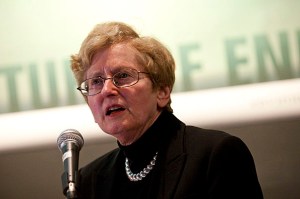Tag: Greenhouse Gases
-
Science & Tech
Wildfires are much worse than a sign of climate change
Loretta Mickley, a Harvard wildfire expert, says wildfires are not just a symptom of climate change, but with the increased burning of millenia-old global peat stores, have the potential to worsen warming.
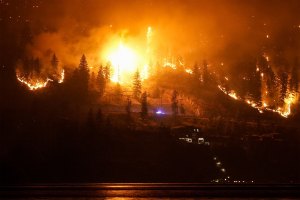
-
Campus & Community
Healthier options for people, planet
The Harvard Food Systems Initiative connects Harvard research on food production and consumption with on-campus experiences and meals.
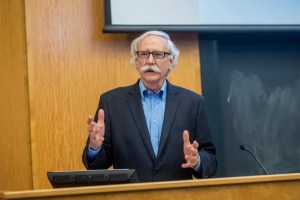
-
Science & Tech
10 teams tackle climate change
Ten research teams at Harvard will share $1.3 million in the eighth round of the Climate Change Solutions Fund awards, which address both local and global issues.
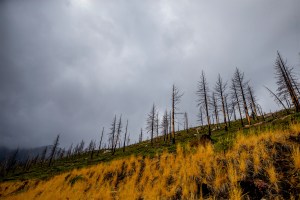
-
Campus & Community
Four electric buses join Harvard’s fleet
Four new electric shuttle buses are expected to lower the University’s greenhouse gas emissions by more than 220,000 pounds annually.

-
Science & Tech
Losing time against climate disaster
In an online Harvard Science Book Talk, philanthropist Bill Gates warns of environmental perils ahead and offers a plan to combat them.
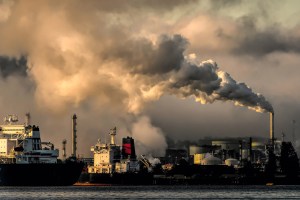
-
Science & Tech
No laughing matter
A recent study shows that nitrous-oxide emissions from thawing Alaskan permafrost are about 12 times higher than previously assumed. About a quarter of the Northern Hemisphere is covered in permafrost, which is thawing at an increasing rate. And, even though researchers are monitoring carbon dioxide and methane, no one seems to be monitoring N2O, the…
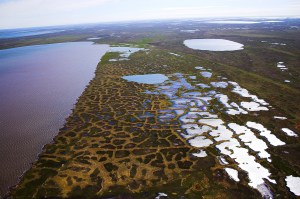
-
Health
A better way of living
Aaron Bernstein, associate director for Harvard’s Center for Health and the Global Environment, studies how changes in transportation, diet, and energy can immediately benefit health.
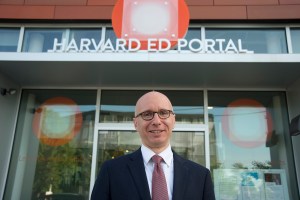
-
Health
For better health, reduce greenhouse gases
The “Harvard Chan: This Week in Health” podcast sits down with Aaron Bernstein, associate director of the Center for Health and the Global Environment at the Harvard Chan School, to discuss how climate change will impact health and health care costs.
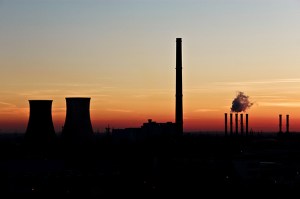
-
Science & Tech
Another step in the wrong direction
Climate specialists came together at the Geological Lecture Hall to consider a dangerous milestone in carbon dioxide levels.
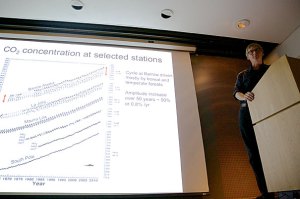
-
Science & Tech
U.S. methane emissions exceed government estimates
Emissions of methane from fossil fuel extraction and refining activities in the United States are nearly five times higher than previous estimates, according to researchers at Harvard University and seven other institutions.
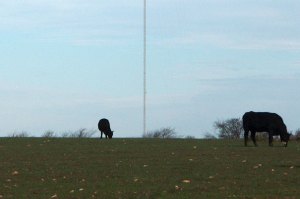
-
Science & Tech
Carbon counter
Atmospheric scientists at the Harvard School of Engineering and Applied Sciences (SEAS) and Nanjing University have produced the first “bottom-up” estimates of China’s carbon dioxide (CO2) emissions, for 2005 to 2009, and the first statistically rigorous estimates of the uncertainties surrounding China’s CO2 emissions.
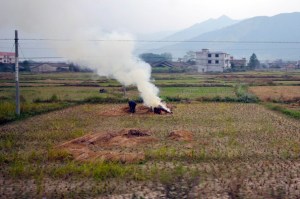
-
Science & Tech
‘Warming hole’ delayed climate change
Climate scientists at the Harvard School of Engineering and Applied Sciences (SEAS) have discovered that particulate pollution in the late 20th century created a “warming hole” over the eastern United States — that is, a cold patch where the effects of global warming were temporarily obscured.

-
Campus & Community
Green stars
On April 12, hundreds of staff, students, and faculty gathered to recognize more than 60 individual and team winners at the third annual Green Carpet Awards hosted by the Office for Sustainability.

-
Science & Tech
Of orbits and ice ages
In a paper published in the journal Nature, Harvard Professor of Earth and Planetary Sciences Peter Huybers confirms that changes in the orientation of the Earth’s spin axis have contributed to periods of major deglaciation in the past million years.
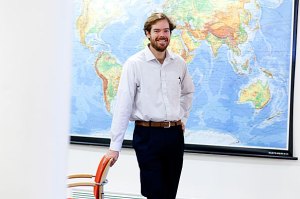
-
Science & Tech
A vote for more natural gas
James Hackett, chairman and chief executive officer of the Anadarko Petroleum Corp., described an energy future driven by new, abundant supplies of natural gas. He spoke during a Future of Energy talk sponsored by the Harvard University Center for the Environment.
-
Science & Tech
Weighing the risks of fracking
Susan Tierney, former assistant secretary for policy at the U.S. Department of Energy, discussed the environmental risks and potential benefits of shale gas extraction in a Future of Energy talk sponsored by the Harvard University Center for the Environment.
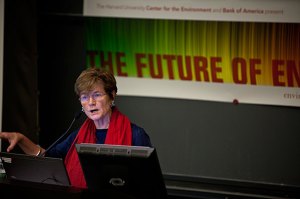
-
Science & Tech
Pondering energy’s future
Reducing dependence on foreign oil and reducing greenhouse gases are the two major challenges facing U.S. energy systems, a visiting federal energy official told a Harvard audience.

-
Science & Tech
Trees tell of shifting world
Trees from the Harvard Forest to the Amazon rainforest are experiencing changing climactic conditions, with rising temperatures potentially making tropical trees a significant source of carbon dioxide.
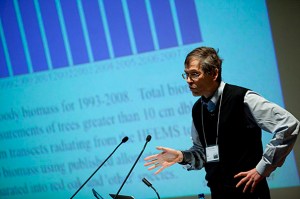
-
Campus & Community
How to engineer change
Harvard’s School of Engineering and Applied Sciences makes rapid progress in reaching long-term energy-saving goals.
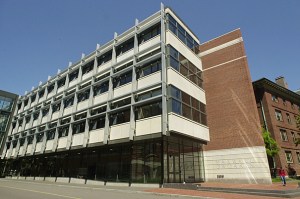
-
Science & Tech
Battling climate change on all fronts
Harvard’s research spans the gamut from the sciences to the humanities, examining key questions about this critical challenge facing humanity.
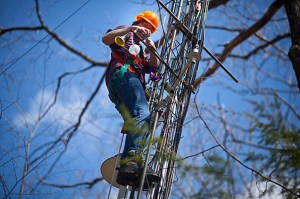
-
Campus & Community
Campaign to turn Crimson green
Harvard makes great strides in cutting its everyday energy use, saving money and greening the campus in the process.
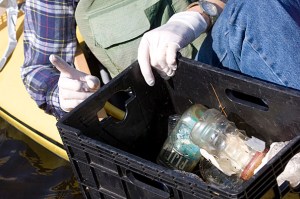
-
Campus & Community
The greening of the Law School
Harvard Law School moves aggressively to cut its greenhouse gas emissions and save resources.
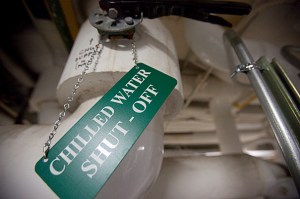
-
Science & Tech
Reality check
Author-turned-activist Bill McKibben says the fight to arrest global warming requires an international movement to force political change.
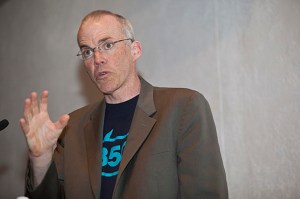
-
Campus & Community
Bottom line gets a touch of green
In a University-wide race to reduce energy use and greenhouse gases, Harvard Business School shares its strategies for technology and behavior.
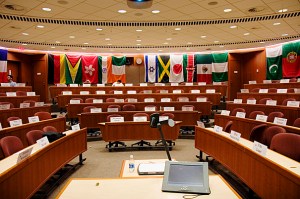
-
Science & Tech
New source of natural gas
Chesapeake Energy’s chief executive officer, Aubrey McClendon, struck a positive note on the future prominence of natural gas as an energy source, though some critics decried new gas extraction techniques.
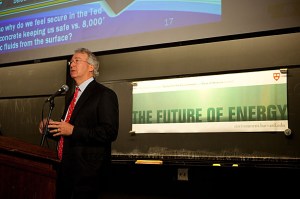
-
Campus & Community
FAS continues greening its scene
With a sweeping program in place to reduce energy use, FAS is making major inroads in savings, both in power and money.

-
Campus & Community
Taming the energy beast
Greenhouse gas emissions drop 10 percent as Harvard eyes 2016 goal.
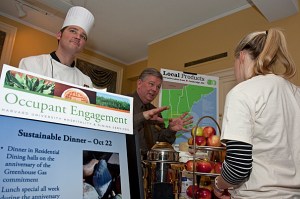
-
Campus & Community
Around the Schools: Faculty of Arts and Sciences
Green ’13 is a new initiative from the class of 2013 that aims to change the culture of personal behavior, starting with being more sustainable.

-
Campus & Community
Workplace, green place
This spring Harvard launched a certification program for “green offices,” bringing the University’s big ambitions for energy savings down to the personal scale.




